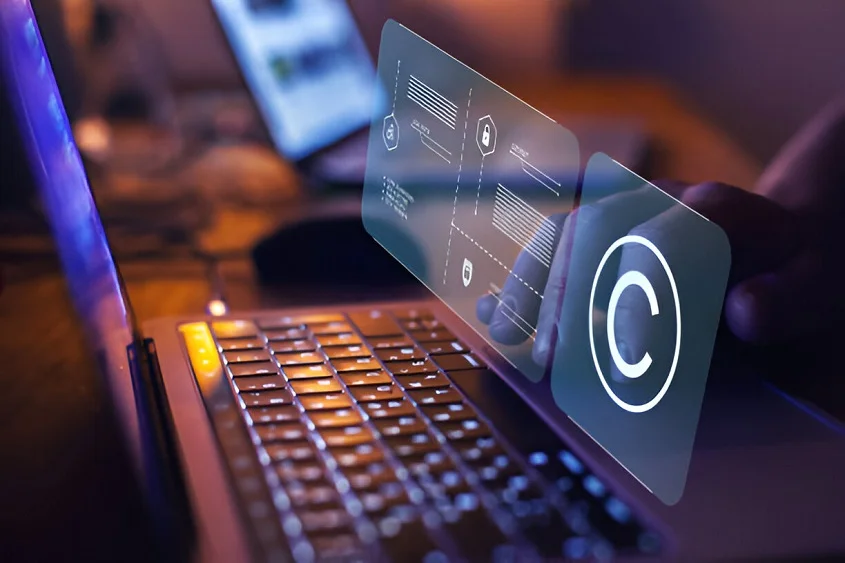The Future of Intellectual Property Law: Emerging Issues and Trends
- Updated on: Jan 11, 2025
- Read 5 minutes
- Published on Jan 11, 2025
The future of IP law is shaped by technology, global economy & societal attitudes. Emerging issues & trends include AI, blockchain, international trade & public perception
Intellectual property (IP) law is a complex and ever-evolving field that plays a crucial role in protecting the rights of businesses and innovators. It encompasses a wide range of legal protections, including patents, trademarks, copyrights, and trade secrets. These legal protections are designed to give creators and owners of IP exclusive rights to use, license, and monetize their creations.
In the business world, IP law is essential for ensuring that companies can protect their investments in research and development, as well as their brand and reputation. Patents, for example, allow companies to prevent others from making, using, or selling their inventions without permission. Trademarks, on the other hand, protect a company’s brand and reputation by preventing others from using similar or identical marks to confuse consumers.
In the innovation industries, IP law plays an equally important role in protecting the rights of creators and inventors. Copyright law, for example, gives authors, musicians, and other creators exclusive rights to reproduce, distribute, and display their works. In the field of software development and technology, patents are commonly used to protect software and hardware innovations and trade secret laws protect confidential information such as user data and manufacturing processes.
The Impact of Technology on Intellectual Property Law
The rapid pace of technological advancement has had a significant impact on intellectual property (IP) law. As technology continues to evolve, it has created new challenges and opportunities for businesses and innovators in terms of protecting and enforcing their IP rights.
One of the major impacts of technology on IP law is the way it has changed the way IP is created, distributed, and consumed. For example, the proliferation of the internet and social media platforms has made it easier for individuals and companies to share and distribute content, but it has also made it more difficult to control and protect that content from infringement. Similarly, advancements in 3D printing and other manufacturing technologies have made it easier to create physical products without the need for traditional manufacturing methods, which can make it harder to enforce patents and other IP rights related to those products.
Another major impact of technology on IP law is the way it has changed the way IP is enforced. For example, the rise of artificial intelligence (AI) and machine learning has made it easier to detect and prevent IP infringement, but it has also created new challenges for IP law in terms of determining liability for infringement by AI systems. Blockchain technology has also been proposed as a potential solution for tracking and verifying IP rights, but its implementation is still being explored.
The Role of Intellectual Property in the Global Economy
Intellectual property (IP) plays a critical role in the global economy, both in terms of promoting innovation and driving economic growth. IP rights, such as patents, trademarks, and copyrights, give creators and owners of IP exclusive rights to use, license, and monetize their creations. These rights provide an incentive for businesses and innovators to invest in research and development, as well as to develop and protect their brands and reputations.
One of the ways in which IP rights contribute to the global economy is by promoting innovation. Patents, for example, provide inventors and companies with a temporary monopoly on their invention, which allows them to recoup their costs and make a profit. This incentivizes innovation and encourages companies to invest in research and development. Copyrights and trademarks also play a role in promoting innovation by protecting the rights of creators and allowing them to earn a living from their creations.
Another way in which IP rights contribute to the global economy is by driving economic growth. IP-intensive industries, such as software, pharmaceuticals, and entertainment, are major drivers of economic growth in many countries. These industries rely heavily on IP rights to protect their investments in research and development and to monetize their creations. In addition, IP rights also play a role in attracting foreign investment and facilitating international trade, as companies are more likely to invest in and trade with countries that provide strong IP protections.
In recent years, there has been an increased cooperation among countries to protect and enforce IP rights, with more multilateral agreements such as the Trans-Pacific Partnership (TPP) and the Transatlantic Trade and Investment Partnership (TTIP) to harmonize intellectual property laws among countries. The trend of free trade agreements including IP protections will facilitate international trade and investment in IP-intensive industries.
The Future of Intellectual Property Law
The future of intellectual property (IP) law is likely to be shaped by a number of factors, including advancements in technology, changes in global economic and political conditions, and evolving societal attitudes towards IP. Some of the key issues and trends that are likely to shape the future of IP law include:
- The impact of AI and machine learning on IP law: As AI and machine learning technologies continue to evolve, they are likely to have a significant impact on IP law. This could include issues related to determining liability for IP infringement by AI systems, as well as new opportunities for protecting and enforcing IP rights using AI and machine learning.
- The rise of blockchain and other decentralized technologies: Blockchain and other decentralized technologies have the potential to revolutionize the way IP rights are tracked and verified, making it easier for creators and owners to protect and monetize their IP. However, there are also concerns about how these technologies will impact traditional IP models, as well as the need for new legal frameworks to govern their use.
- Changes in global economic and political conditions: The global economy is constantly evolving, and this is likely to have a significant impact on IP law. For example, changes in trade policies and agreements could affect the way IP rights are protected and enforced internationally.
- Evolving societal attitudes towards IP: The way society views IP is also likely to change in the future, as more people become aware of the impact that IP rights have on innovation, creativity, and economic growth. This could lead to changes in the way IP rights are granted and enforced, as well as increased public pressure for more open and accessible IP systems.










No comment yet, add your voice below!